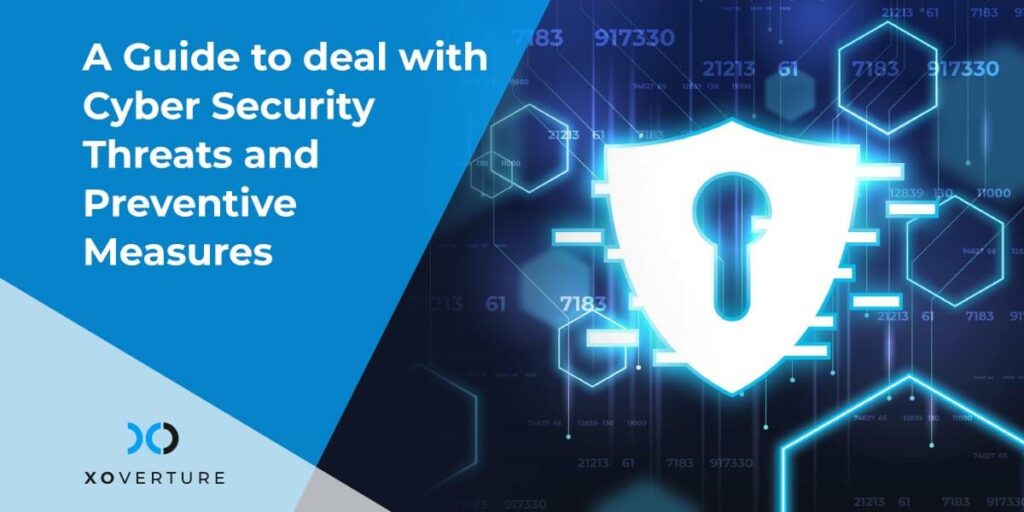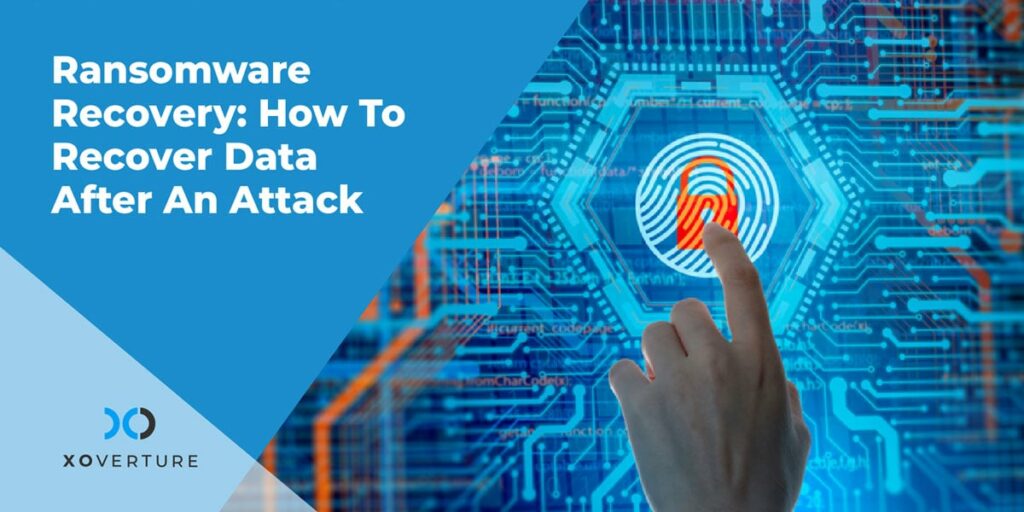Cybersecurity can never be overemphasized when it comes to the data integrity of a business. A wealth of information has been shared to educate businesses on implementing effective security measures. Although cybersecurity features have become more advanced, cybercriminals are always looking for new ways to infiltrate businesses to steal data. As surprising as it may sound, cybercriminals have been victorious in most cases.
Cybersecurity is paramount to the success of any growing business today. Simply put, it is a security measure to protect your computers, hardware, software, and any data from malicious attacks. Businesses need to analyze their existing systems and plan an appropriate cybersecurity strategy. Data is at the core of any organization and any vulnerabilities could lead to disaster.
Lessons From Breaches: Cybersecurity Is Serious And Real
One challenge that businesses face is an evolving list of cybersecurity threats. Threats are always lurking and it is becoming increasingly difficult for businesses to keep up with them. In order to be effective in your fight against cyber threats, you need to be proactive and adapt to the current trends. Real-time assessment and continuous monitoring of your data and network is crucial. Let’s take a look at a recent breach that can teach us some valuable lessons.
Takeaways from the Facebook Breach
Facebook has suffered some setbacks in their security and a significant data breach took place in September 2018. Following the data breach, Facebook found that close to 50 million user accounts were compromised. As the damage control progressed, the tech giant realized that 40 million more users had the potential to be compromised. Here are a few key points to help your business learn from the breach:
- Cybersecurity breach is not a matter of “IF” it will happen, but it is about “WHEN” it can happen
- Constant vigilance and adaptability to the latest security features are crucial for all
- Have a standard plan of action in case of a security breach
- Alert the users
- No one is safe and consistent efforts are required to remain safe
Cybercriminals have become sophisticated and security measures need to match their capabilities. Always remember, “When you lose your focus on cyber threats, you put your business at stake.” Nothing can beat a well planned and executed cyber security strategy for your organization.
Also Read: Virtual Threat and the Effect of Data Loss on Your Business
Top Targets of Cyber Criminals
Cybercriminals can attack any industry. Businesses can implement several measures to fend off attacks, but it is still challenging to catch them. Here are a few industry-specific recommendations for those industries that are especially vulnerable to cybercriminals.
Retail
Retail businesses hold valuable customer data, which makes them vulnerable to cyber attacks. A report reveals that cybercriminals have become more structured and organized; this means that the retail organizations need to reinforce their network by investing in a good firewall and applications that prevent hackers from accessing their data. Additionally, most retail organizations are moving their businesses to the online platform as it helps them scale up and enhance their overall sales. This brings the retailers in contact with the cyberworld and makes them vulnerable to cyber attack. Richard Hollinger, a University of Florida Criminology professor, and a lead author said: “Cybersecurity concerns are top-of-mind for retailers today as criminals continue to become more sophisticated in this area.”
Finance & Insurance
The finance and insurance industries are definitely ripe for cybercrime. Forbes reported that financial services fall victim to cybersecurity attacks 300 times more than other industries. This is the industry where attackers find all the data that they need. The finance and insurance industries hold sensitive data, including bank account details, financial information, personal property and asset information, and more. Once this sensitive information is leaked, disaster may result and it is costly and time-consuming to recover or recreate lost data. Most cyber attacks on finance and insurance businesses go unnoticed, while others are not even reported as it could negatively impact their reputation in the market.
Hospitality
The hospitality industry has a long list of reputed businesses experiencing cyber attacks. In 2015, Hilton fell victim to two cybersecurity attacks in which credit card details and other sensitive information of 350,000 customers was leaked. This data leak resulted in New York Attorney General Eric T. Schneiderman slapping a whopping fine of $700,000 on the hotel giant. With changing times and technology, the cybercriminals also customize their approach to experience a better success rate. In most cases, attacks are directed towards the hospitality industry’s point of sales systems (PoS). When this happens, the client’s financial losses are an expensive burden for the businesses to cover.
Education
Educational institutions store sensitive information that needs to be protected, including personal identifiers and financial information of students and their parents. In addition, schools and universities conduct highly sensitive and confidential research, which is appealing to hackers. One report found that 20% of attacks to educational institutions were motivated by espionage, which is likely due to cyber criminals seeking that kind of information and research. Highly sensitive research is priceless and the report also stated 11% attacks have been just for “fun.” In cases where the network infrastructure is weak, the attackers may use it to launch cyber attacks against other targets. The most common approach of cyber attacks are phishing emails or sending malicious code into the website. Education institutions that don’t take cybersecurity seriously fall privy to cyber attacks.
Cannabis
The cannabis industry is growing at a rapid rate and many new businesses are entering the market. Small and mid-sized cannabis businesses are especially in danger of cyber attacks, as they may not have proper security protections in place. Cannabis businesses store a wealth of client and business data, which are treasure chests full of gold that hackers are seeking. To get into the company’s network, hackers target less secure applications.
MJ Freeway disclosed that some of their client information was stolen in November 2016. This data leak affected businesses in multiple states and MJ Freeway had to work with third-party forensic investigators for damage control. It’s just one of the examples of how even established businesses can succumb to cyber attack. The importance of cybersecurity for cannabis business cannot be overemphasized. The series of successful cyber attacks on cannabis businesses are definitely a lesson for the businesses who have weak security. Industries need to implement efficient cybersecurity measures on a consistent basis.
These are just some of the industries on the hit list of cybercriminals. However, every business with a weak link is an active target for cybercriminals and online businesses need to take proactive steps to protect and secure their data.
Related Article: What is Physical Security and Why is it Important
Prepare for Cyber Threats
If you haven’t faced a cyber attack yet, you are one of the few fortunate businesses. However, it definitely does not mean that you will always remain safe. Make the best use of your time and resources now to strengthen your network security. Remember that it is not enough to do just a few basic steps, but that it requires a bunch of tactics to mitigate the risks effectively. Here are some of the primary steps that you need to take.
Understand the Danger:
One of the first things to understand is that danger exists. Once you acknowledge this fact, it will be much easier to build an appropriate strategy around it. Spend time identifying the loopholes in your network that can give entry to the hackers. Here are three of the most common ways in which cybercriminals try to gain entry into the organization’s network:
Phishing emails:
Phishing is an attempt to get personal information such as usernames and passwords. The sender usually portrays himself as being a trustworthy source. Often times, these emails direct users to fake websites where they are enticed to provide their personal information. In this approach, the intent is clear: deceive the user and exploit the weaknesses in the organization’s web security.
Software:
Vulnerability in the software gives hackers an opportunity to get into the system. The vulnerabilities are also referred to as holes in the software. Holes in software can only be filled with appropriate software patches that should be updated regularly. There are multiple vulnerabilities and cybercriminals can easily access your organization’s network. Malware In simple terms, malware is a software designed to cause damage to your computer network. Malware is known for the manner in which they spread and there are multiple techniques attackers use. If you don’t have appropriate controls in place to protect your systems, it will be easy for attackers to penetrate the computer network.
These are just some of the dangers that a business needs to look out for. Knowing the danger and impact can also help when planning an appropriate strategy.
Train your employees:
Employees share the responsibility to keep an organization safe from cyber attacks. As a result, it is important to ensure that your employees understand and encourage safe cybersecurity practices. The employees should be aware of the dangers of phishing emails, visiting unsafe websites, recent developments in cybersecurity and threats, and other similar risks. Ongoing training sessions are a great help for organizations while they discuss security breaches to their clients.
Let the professionals take over:
Cyber attackers know their game very well. To stay on top of cybersecurity, you need more than the basic steps. IT professionals are necessary for strengthening your network security. Cybersecurity professionals possess critical thinking skills and objectively analyze situations to target the root cause of a problem and not just the symptoms. The threats are constantly changing so you need someone with the ability and experience to handle it. Professionals completely understand the cyber network so they understand the scope of a threat to your organization.




